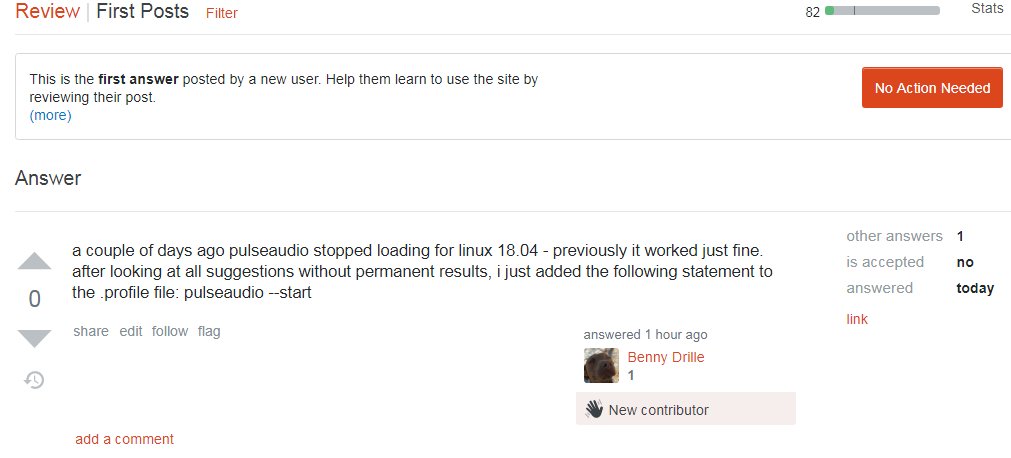There is nothing special about newly posted answers to questions about releases that have reached end of life (or end of standard support).
The goal of the site is to build a library of answers to questions about Ubuntu. A question that describes a problem on a particular release is not necessarily exclusive to that release. An answer that reports it was tested on a particular release is likewise not necessarily exclusive to that release. That one cannot be sure, from reading an answer, if it would work on the release mentioned in the question is not a moderation issue and is not a reason to delete a post or to recommend deletion in review. (In my opinion, it is most often not even a reason to cast a downvote.)
When a problem is exclusive to some release but an answer assumes it is not, that is relevant to the accuracy of the answer. If you know this to be the case, and especially if you can explain it, downvoting and commenting may be helpful. When you can retain the meaning and intent of an answer while clarifying or even while improving it technically, an edit is appropriate. Rarely if ever should an answer receive flags or delete votes on the grounds that it is technically inaccurate. That's what votes are for.
None of this has anything to do with whether the release originally asked about is currently supported or not.

